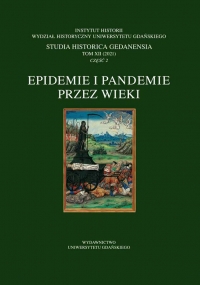Czy Jan Žižka zmarł na zarazę morową?
Did Jan Žižka die of the pestilence?
Author(s): Anna PanerSubject(s): History, Social history
Published by: Wydawnictwo Uniwersytetu Jagiellońskiego
Keywords: Jan Žižka; Hussite revolution; epidemic; Black Death; Yersinia pestis
Summary/Abstract: The author raises the question of the causes of the death of Jan Žižka (1360–1424), Czech national hero and one of the most able leaders of the Hussite revolution between 1419 and 1424. Žižka died suddenly, after a brief illness during the Moravian campaign in October 1424. The illness had symptoms and a course indicating bubonic plague, which from the mid XIVth century assailed the Czech lands, Moravia, and Silesia, as is confirmed by XVth-century and XVIth-century sources, including the Staré letopisy české and the chronicle of Eneasz Sylwiusz Piccolomini. In the XIXth century, this diagnosis was questioned in favour of a severe skin complaint, which produced cluster boils or carbuncles. Because no mortal remains of Žižka have survived, a genetic analysis of bone material is impossible that would establish the presence of plague-causing Yersinia pestis bacteria. Thus, the problem remains to the present in the sphere of hypotheses and discussion. This article is a contribution to the debate.
Journal: Studia Historica Gedanensia
- Issue Year: 2/2021
- Issue No: 12
- Page Range: 63-82
- Page Count: 20
- Language: Polish

